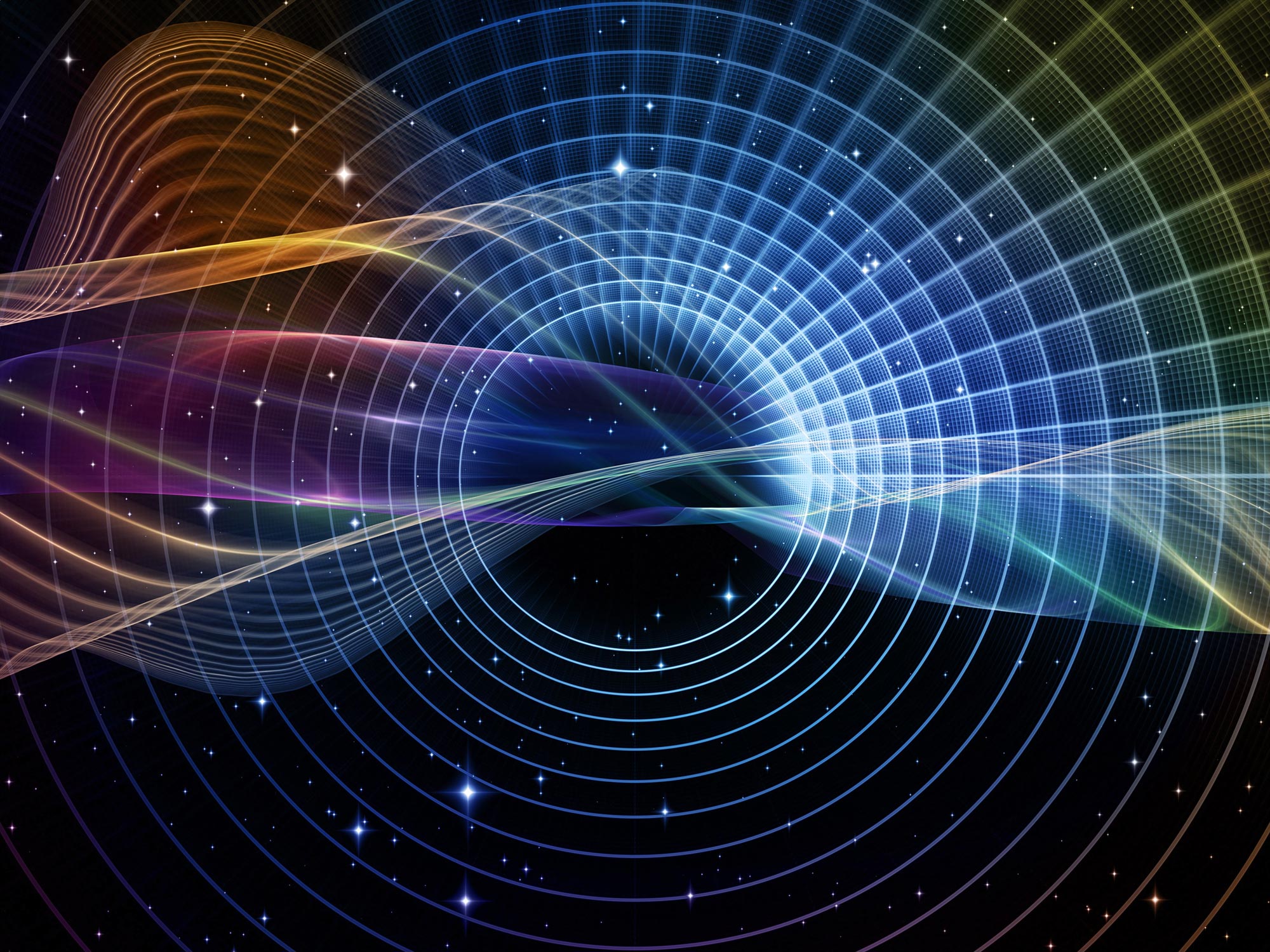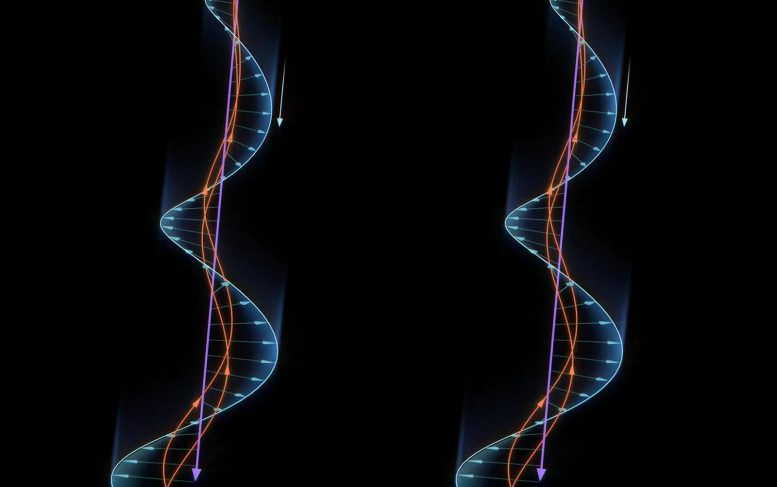
For the first time ever, physicists have observed energy being transferred from resonant electrons to whistler-mode waves in space. This offers confirmation of the non-linear growth theory of waves, which had been previously predicted. This breakthrough could provide a greater understanding of both space plasma physics and space weather, which can have an effect on satellites.
A team from Nagoya University in Japan has observed, for the first time, the energy transferring from resonant electrons to whistler-mode waves in space. Their findings offer direct evidence of previously theorized efficient growth, as predicted by the non-linear growth theory of waves. This should improve our understanding of not only space
Whistler-mode wave magnetic field (blue arrows with spiral) propagating along the magnetic field (purple) interacting with electrons (red) passing through it. Credit: University of Tokyo
Around the Earth, these charged-particle interactions generate waves, including electromagnetic whistler-mode waves, which scatter and accelerate some of the charged particles. When diffuse auroras appear around the poles of planets, observers are seeing the results of an interaction between waves and electrons. Since electromagnetic fields are so important in space weather, studying these interactions should help scientists predict variations in the intensity of highly energetic particles. This might help protect astronauts and satellites from the most severe effects of space weather.
A team comprising Designated Assistant Professor Naritoshi Kitamura and Professor Yoshizumi Miyoshi of the Institute for Space and Earth Science (ISEE) at University of Tokyo, Kyoto University, Tohoku University, Osaka Universityand Japan Aerospace Exploration Agency (DOI: 10.1038/s41467-022-33604-2
This work was supported by Grant-in-Aid for Scientific Research (17H06140, 18H03727, 21K13979) from Japan Society for the Promotion of Science.









